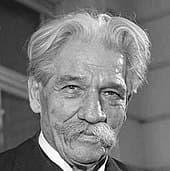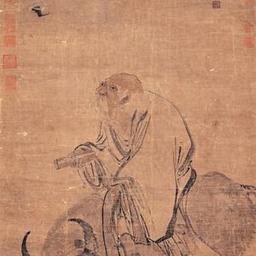154 Quotes
"If we carefully closed the right feedback loops, could we construct a creative flywheel that generates finished works almost by accident, through a stream-of-consciousness process?"
— Gordon Brander
Knowledge gardening is recursive"Knowledge gardening is one kind of system for generating self-organizing ideas. As a kind of self-organizing system, it can’t happen without some kind of feedback loop."
— Gordon Brander
Knowledge gardening is recursive"This is what broken feedback loops feel like. Everything is feed-forward. There are no opportunities in the interface to stumble back over your notes, to recurse back over them. You’re continually adding energy to the system, but none of it is returning back."
— Gordon Brander
Knowledge gardening is recursive"Knowledge gardening, on the other hand, is the emergent result of constructing a feedback system. I recurse over scratch notes, revise them, add to them, refactor them, and combine them with other ideas to form new ideas."
— Gordon Brander
Knowledge gardening is recursive"The core game mechanic of Zettelkasten is to file your note some place where you would want to stumble over it again."
— Gordon Brander
Knowledge gardening is recursive"Like Zettelkasten’s game mechanic, this search-or-create mechanic closes a feedback loop. Every time you enter a new idea, you’re recursing over old ideas. Often you find yourself editing, or refactoring an old note, instead of creating a new note. Over time, these microinteractions add up, generating knowledge from the bottom-up."
— Gordon Brander
Knowledge gardening is recursive"Are social graphs even a moat? Perhaps more than data, but TikTok proves you don’t need a dense social graph to serve up interesting content."
— Gordon Brander
LLMs and information post-scarcity"What information consumes is rather obvious: it consumes the attention of its recipients. Hence a wealth of information creates a poverty of attention, and a need to allocate that attention efficiently among the overabundance of information sources that might consume it. (Herbert A. Simon)"
— Gordon Brander
LLMs and information post-scarcity"Technology for producing and distributing information is useless without some way to locate, filter, organize and summarize it. A new profession of “information managers” will have to combine the skills of computer scientists, librarians, publishers and database experts to help us discover and manage information. These human agents will work with software agents that specialize in manipulating information-offspring of indexing programs such as Archie, Veronica and various World Wide Web crawlers that aid Internet navigators today."
— Gordon Brander
LLMs and information post-scarcity"Hal Varian, by the way, is the person who designed the Google ad auction."
— Gordon Brander
LLMs and information post-scarcity"So, the condition of superabundance creates a need for aggregation. LLMs will amplify that abundance. It’s a good bet that this strengthens the strategic importance of aggregation."
— Gordon Brander
LLMs and information post-scarcity"I think we will need to sign everything to signify its validity. When I say sign, I am thinking cryptographically signed, like you sign a transaction in your web3 wallet."
— Gordon Brander
LLMs and information post-scarcity"I think this may break the web’s security model. The web has a fundamentally feudal structure. It conceptualizes security as a castle wall around the server. The server controls the keys."
— Gordon Brander
LLMs and information post-scarcity"We have to sign everything. We need to start thinking about security the way crypto thinks about security. Not your keys, not your data."
— Gordon Brander
LLMs and information post-scarcity"By contrast, user-owned keys enable user-owned data. Self-sovereign keys give apps one less chokepoint by which to lock you in."
— Gordon Brander
LLMs and information post-scarcity"Perhaps this might result in faster emergence of aggregators and also faster collapse. A hotter innovation loop. New aggregators could rapidly emerge and compete, without having to contend with incumbent network effect."
— Gordon Brander
LLMs and information post-scarcity"LLM vendors seem more like a traditional industrial monopoly. Like an industrial monopoly, the moat here is capital cost—the cost of gathering the data, and the cost of training the model."
— Gordon Brander
LLMs and information post-scarcity"But industrial monopolies rely on the means of production remaining scarce. Is this a safe assumption in software? Is it a durable moat?"
— Gordon Brander
LLMs and information post-scarcity"I suspect there will be a lot of pressure to commoditize LLMs. Why? LLMs are the complement to many consumer products, and smart companies try to commoditize their compliments:"
— Gordon Brander
LLMs and information post-scarcity"Open source models may also be at a competitive advantage because they enable permissionless innovation."
— Gordon Brander
LLMs and information post-scarcity"The state of the art in AI was all teddy bears and cowboy astronauts—inoffensive images generated by product managers—until Stable Diffusion was released."
— Gordon Brander
LLMs and information post-scarcity"One good-enough open source model, and we saw a proliferation of product concepts and demos."
— Gordon Brander
LLMs and information post-scarcity"Permissionless models have more variety, in the cybernetic sense."
— Gordon Brander
LLMs and information post-scarcity"The structure of a network itself, more than the regulations which govern its use, significantly determines what people can and cannot do."
— Gordon Brander
Network intersubjectives"Centralized networks tilt toward centralized governance. The money and power are centralized, so governance is too. Benevolent monarchy at best, totalitarianism at worst."
— Gordon Brander
Network intersubjectives"Centralization is often necessary for new product innovation. Innovations often start out vertically integrated in order to line up all the pieces in the stack."
— Gordon Brander
Network intersubjectives"Bottlenecked by bureaucracy. We can think of the central bureaucracy as a CPU who’s job is to compute policy decisions for the rest of the network. The complexity of the problems that can be dealt with is limited by the complexity of the central bureaucracy."
— Gordon Brander
Network intersubjectives"If a system is to be stable, the number of states of its control mechanism must be greater than or equal to the number of states in the system being controlled."
— Gordon Brander
Network intersubjectives"Another way to see this is that a centralized bureaucracy does not have requisite variety to govern organic growth. The edge is more expressive than the center, and changes more quickly. This forces the center to limit the variety at the edge in order to maintain control of the system."
— Gordon Brander
Network intersubjectives"Because people at the edge don’t have power, it is difficult for them to create feedback mechanisms to pass information back up to center."
— Gordon Brander
Network intersubjectives"While centralization first evolves for reasons of efficiency, the purpose of the resulting hierarchy soon shifts toward its own perpetuation."
— Gordon Brander
Network intersubjectives"Philosopher Charles Taylor refers to this kind of structure as a Direct-Access Society. In a Direct-Access Society, people are conceived of as individuals, disembedded from social hierarchies, free economic, or voluntarist agents."
— Gordon Brander
Network intersubjectives"We could say P2P centralizes the system around the protocol, in an attempt to distribute something else (control, resources, or power). This means governance has to be encoded within the protocol itself."
— Gordon Brander
Network intersubjectives"Federated, or decentralized (B), networks tilt toward a patchwork of private and public shared spaces. They are a hybrid model, where many small-to-mid-sized hubs agree to cooperate together using shared protocols."
— Gordon Brander
Network intersubjectives"This grants federation more variety than centralized one-size-fits-all networks. It also grants federation more variety than p2p networks, since a protocol can never have requisite variety to encompass the complexity of human nature."
— Gordon Brander
Network intersubjectives"In fact, centralization emerges organically in all mature ecosystems."
— Gordon Brander
Network intersubjectives"So the more connections a node gets, the more it gets. This is called preferential attachment, and it happens around any kind of more-gets-more Matthew Effect: connections, capital, power. Preferential attachment results in networks with power law distributions."
— Gordon Brander
Network intersubjectives"Federated networks are always in danger of collapsing into centralized networks for this reason."
— Gordon Brander
Network intersubjectives"Evolved systems end up being tapestries of centralization, decentralization, and federation, for these reasons."
— Gordon Brander
Network intersubjectives"A network of 150 friends has 22,350 relationships to keep track of. That’s quite a few, and the number grows exponentially with the number of friends: (n * (n-1))."
— Gordon Brander
Dunbar-scale social"The bi-directional network scaling problem. Beyond 150, we start to run up against cognitive limits. This limit is called Dunbar’s Number."
— Gordon Brander
Dunbar-scale social"Beyond 150, you start to run into problems. You can’t keep track of all the players, so free-riders get away with it. Sociopathic behaviors become personally advantageous. This isn’t just true for hunter-gatherers."
— Gordon Brander
Dunbar-scale social"The ugly truth is that we believe in connecting people so deeply that anything that allows us to connect more people more often is *de facto* good."
— Gordon Brander
Dunbar-scale social"The internet makes it possible to connect everybody to everybody. Social media leveraged this capability to rapidly bootstrap massive network effects."
— Gordon Brander
Dunbar-scale social"We’re way past our Dunbar limit. In these conditions, trust is nonexistent, sociopathic behaviors are personally beneficial. There is little incentive to cooperate."
— Gordon Brander
Dunbar-scale social"In the meantime, what if we scaled down? We can already see this happening, people retreating to group chats, Discords, Slacks. Smaller, high-trust communities."
— Gordon Brander
Dunbar-scale social"Subtext is line-oriented. Each line in the file is treated as a discrete block of content."
— Gordon Brander
Subtext: markup for note-taking"The right mental analogy for Subtext is not the page. It is the the index card."
— Gordon Brander
Subtext: markup for note-taking"Subtext represents block-oriented documents as line-oriented markup."
— Gordon Brander
Subtext: markup for note-taking"Blocks are thought legos. A block-oriented document is composable (and decomposable). You can break it apart into component blocks, filter it down to blocks of a particular type, merge documents, pluck out blocks, link to specific blocks, etc."
— Gordon Brander
Subtext: markup for note-taking"Linear block-oriented documents are like shipping containers for discrete thoughts. Because blocks are structurally uniform, they can be automatically moved around and reorganized. Software can split, join, and merge documents easily and effectively, because the document structure is simple."
— Gordon Brander
Subtext: markup for note-taking"The plan is to have Subconscious display these links as transclusions. Rather than linked words in text, imagine something more like a quote tweet… Links to images display as literal images, links to videos display as playable videos with playback controls, links to documents display some or all of the content inside of the linked document. This lets you compose hypertext documents from many smaller documents."
— Gordon Brander
Subtext: markup for note-taking"Big documents can be composed by linking to small documents."
— Gordon Brander
Subtext: markup for note-taking"However, over time, I noticed that my markup needs for note-taking were different from my markup needs for publishing."
— Gordon Brander
Subtext: markup for note-taking"My note-taking style organically converged on a tiny subset of Markdown's features: text, links, lists, quotes, and one level of heading. To have more may be useful for publishing, but is often overkill for note-taking."
— Gordon Brander
Subtext: markup for note-taking"I started to run into limitations with Markdown and HTML. As a complex publishing format, it is unclear how to meaningfully decompose or merge Markdown/HTML documents."
— Gordon Brander
Subtext: markup for note-taking"When you combine documents, heading levels may need to be changed, lists may need to be flattened or nested. Because the document format is complex, foreknowledge of the meaning of the document is necessary to make meaningful changes."
— Gordon Brander
Subtext: markup for note-taking"Subtext is an attempt to resolve the problem by radically simplifying it. Paradoxically, by limiting the format to a flat list of blocks, we radically expand what software can do with it."
— Gordon Brander
Subtext: markup for note-taking"When you train a deep learning system, it builds up a a latent space. A latent space is a hyperdimensional space where things that are similar along some dimension are near to each other along that dimension."
— Gordon Brander
Search reveals useful dimensions in latent idea space"Latent space is like a map you can use to correlate things with other things, along many dimensions."
— Gordon Brander
Search reveals useful dimensions in latent idea space"What if we imagined ideas as a kind of hyper-dimensional latent space?"
— Gordon Brander
Search reveals useful dimensions in latent idea space"Imagine your notes as a stack of papers. Next to that stack of papers, you have a long red string, with a needle at one end. To perform a search, you leaf through each of the pages. Whenever you find a match for your query, you poke the needle through, right where the match exists on the page, and you thread the page onto the string. You’re methodical, so you order the pages on the string by relevance, taking into account how close the match is, and where it appears on the page."
— Gordon Brander
Search reveals useful dimensions in latent idea space"Now, stretch out the red string. You’ve arranged your ideas along one dimension of latent idea space. Imagine doing this for all possible dimensions at once."
— Gordon Brander
Search reveals useful dimensions in latent idea space"Any sufficiently advanced search is indistinguishable from a hyperlink."
— Gordon Brander
Search reveals useful dimensions in latent idea space"When a search becomes extremely specific, it functions like a coordinate to a specific point in latent idea space."
— Gordon Brander
Search reveals useful dimensions in latent idea space"Where a book offers one narrative linearization of a topic, and hypertext offers a static graph of relationships, we might see search as a dynamic graph."
— Gordon Brander
Search reveals useful dimensions in latent idea space"Search is a signal of intent. It reveals the useful dimensions within latent idea space. By asking the question, we are signaling which possible connections, in the space of all possible connections, matter to us."
— Gordon Brander
Search reveals useful dimensions in latent idea space"Questions are also knowledge, and can be used to construct both answers, and questions."
— Gordon Brander
Search reveals useful dimensions in latent idea space"If you've ever maintained a Wiki, you've probably noticed that there is a lot of refactoring involved. Ideas are written down in one place, then rewritten, moved, titles changed, links redirected, pages split and merged."
— Gordon Brander
Concept Refactoring"Hypertext wants to be refactored. This is a feature of hypertext, not a bug. Through constant refactoring, knowledge in a hypertext network evolves to find the right packets for a given domain, where one packet = one idea."
— Gordon Brander
Concept Refactoring"Refactoring lets us construct both our question and our answer through organic exploration."
— Gordon Brander
Concept Refactoring"The kind of map you construct depends upon what you’re trying to see."
— Gordon Brander
Concept Refactoring"Factoring out documents. Notes often start out as a jumble of ideas. As a note evolves, separate ideas are factored out into their own notes."
— Gordon Brander
Concept Refactoring"Note that if we look at this in terms of Capture, Organize, Synthesize, many of these actions are capture and organize. Capture and organize are both modular, rather than holistic actions."
— Gordon Brander
Concept Refactoring"Rewriting may be trickier, because it requires holistic synthesis that spans the boundaries of any single idea, paragraph, or page."
— Gordon Brander
Concept Refactoring"If we want to augment or automate refactoring, we need a way to structure text into logical blocks that can be factored out, merged, added, rearranged, removed. And so… Subtext."
— Gordon Brander
Concept Refactoring"What if we introduced the minimum amount of structure for working with text? Something simple for people, simple for computers, and meaningful for both?"
— Gordon Brander
Concept Refactoring"Is the thinking in the pencil? The cybernetic resolution to this paradox is to shift our focus away from static objects—pencil, piano, person—and toward the flow of information between those objects."
— Gordon Brander
The Knowledge Ecology"The pencil and the person make up a feedback loop. The piano and the person make up a feedback loop. Together they make up an extended-self system that can do things which neither could have done alone."
— Gordon Brander
The Knowledge Ecology"Familiar tools are represented by the brain as an extension of the body."
— Gordon Brander
The Knowledge Ecology"Like the cybernetic shift from object to message, the concept of the extended phenotype is a Copernican shift. It resolves a paradox by decentering the organism."
— Gordon Brander
The Knowledge Ecology"For Dawkins, who developed the idea, it is not the organism that is unit of selection, it is the selfish gene. The rest (including me) is a just a vehicle, and the boundaries of that vehicle are incidental. One self-system can freely bleed into another."
— Gordon Brander
The Knowledge Ecology"To quote Brian Eno, “the great benefit of computer sequencers is that they remove the issue of skill, and replace it with the issue of judgement”."
— Gordon Brander
The Knowledge Ecology"Organize to give some first-pass structure using rough heuristics. Card sorting, clustering, filing, arranging, etc."
— Gordon Brander
Unconscious R&D"Why do we expect ourselves to create good ideas from nothing (synthesize)? It’s much easier to generate ideas when you have lots of material (capture) clustered by themes and relationships (organize)"
— Gordon Brander
Unconscious R&D"what if instead of fighting a broken system through force of will, we constructed a new system—a cybernetic system—designed to amplify capture-organize-synthesize? If we carefully closed the right feedback loops, could we construct a creative flywheel that generates finished works almost by accident, through a stream-of-consciousness process?"
— Gordon Brander
Unconscious R&D"Self-organization happens through composition. Composition is combining things with other things to create new things."
— Gordon Brander
Self-Organizing Ideas"Alphabets tend to follow Gall’s Law: simple alphabets produce complex behaviors, complex alphabets produce stupid behaviors."
— Gordon Brander
Self-Organizing Ideas"When we write, we flatten the cloud of associated ideas in our head into a linearized subset (lossy). The reader then unflattens this linearized subset into their own cloud of associated ideas (lossy). Each lossy step is an opportunity for mutations in understanding to emerge. Useful mutations are remembered (selection) and shared (heredity). And so... mutation, heredity, selection. Ideas evolve!"
— Gordon Brander
Self-Organizing Ideas"If we want to generate self-organizing ideas, perhaps what we want is less like prose, and more like an index card, where 1 card = 1 idea."
— Gordon Brander
Self-Organizing Ideas"Not formatting, but the smallest amount of structure to unbundle text into sub-atomic units, so it can be composed and recomposed."
— Gordon Brander
Self-Organizing Ideas"It is a shift in perspective that can be grounded in cybernetics theory, particularly Gordon Pask’s Conversation Theory, and it yields a number of surprising design insights."
— Gordon Brander
Notes are conversations across time"Conversation Theory takes another view. It sees knowledge as conversational. Knowledge exists subjectively in our minds, and is constructed through conversation with others."
— Gordon Brander
Notes are conversations across time"As we converse, each of us constructs our own subjective model. I serialize my subjective understanding into a message. You receive this message, interpret it, update your subjective understanding, and then respond by serializing your own message, which I receive..."
— Gordon Brander
Notes are conversations across time"The loop stops when participants mutually decide they have converged toward a close enough shared understanding."
— Gordon Brander
Notes are conversations across time"Each participant has a different subjective model of the world. We can draw from our differing subjective understandings to knock conversation out of convergence."
— Gordon Brander
Notes are conversations across time"The crucial requirement is for the self to allow the other to “speak back” and to accommodate the unexpected so that self affects other, and other affects self. Avoiding requisite variety, both get partially “out of control” in a mix of positive and negative feedback, thus conversing along non-determinable trajectories to arrive and previously unknown destinations."
— Gordon Brander
Notes are conversations across time"Conversations don’t just happen between people."
— Gordon Brander
Notes are conversations across time"A conversation can happen between yourself and yourself, across time, through the notes your past self took for your future self."
— Gordon Brander
Notes are conversations across time"Cybernetics shifts our focus away from objects, and toward the flow of information between objects. Design through the lens of Conversation Theory is not about features and screens. Design is the making and breaking of cybernetic feedback loops."
— Gordon Brander
Notes are conversations across time"They know feedback loops are nonlinear, and force of will is only linear."
— Gordon Brander
Notes are conversations across time"We can construct conversational feedback loops that program creativity, or garden ideas from the bottom-up, or evolve ideas spontaneously."
— Gordon Brander
Notes are conversations across time"I think of this kind of process as knowledge gardening. You collect and plant idea seeds, returning periodically to water and weed. After many days, you find they have grown into a rough outline, a hypothesis, or even a complete work while you were away."
— Gordon Brander
Knowledge gardening is recursive"Here’s the thing: the feedback loops of most note-taking apps are broken, or non-existent."
— Gordon Brander
Knowledge gardening is recursive"Do you ever get the feeling you’re throwing your notes into the void?"
— Gordon Brander
Knowledge gardening is recursive"Most of them are scratch notes—rough, incomplete, touched once, then forgotten."
— Gordon Brander
Knowledge gardening is recursive"There are no opportunities in the interface to stumble back over your notes, to recurse back over them."
— Gordon Brander
Knowledge gardening is recursive"Zettelkasten is an old and surprisingly effective paper system for idea gardening."
— Gordon Brander
Knowledge gardening is recursive"It’s an index-card-based system, and that means you have to do a lot of manual note-card filing. All that filing can be quite a bit of work, but Zettelkasten leans into this limitation to construct a feedback loop."
— Gordon Brander
Knowledge gardening is recursive"Notational Velocity was a tiny note-taking tool built around a single idea: search or create."
— Gordon Brander
Knowledge gardening is recursive"Like Zettelkasten’s game mechanic, this search-or-create mechanic closes a feedback loop. Every time you enter a new idea, you’re recursing over old ideas."
— Gordon Brander
Knowledge gardening is recursive"Over time, these microinteractions add up, generating knowledge from the bottom-up."
— Gordon Brander
Knowledge gardening is recursive"The gist is that I’m building a creative oracle that helps provoke ideas. It also captures those ideas, and remixes and resurfaces them, provoking more ideas... in a feedback loop that powers a flywheel of divergent creative thinking."
— Gordon Brander
Building a Second Subconscious"Building convivial tools means breaking with much of the standard SaaS/Aggregator playbook, where a company owns and controls the software and the data."
— Gordon Brander
Building a Second Subconscious"What if we instead had a small tool that was personal, multiplayer, distributed, evolvable?"
— Gordon Brander
Building a Second Subconscious"Multiplayer: Personal doesn’t have to mean solitary. One of the most interesting ways of thinking is thinking together. “Knowledge production is a group activity, not an individual one.” (Engelbart)."
— Gordon Brander
Building a Second Subconscious"Thoughts, also, resist the single linear narrative. They exist as something more like a hyperdimensional cloud of associations."
— Gordon Brander
Hypertext Montage"When we talk together, we flatten our N-dimensional thoughts into 1D linear narratives, in order to fit them through the 1D bottleneck of words. When we draw or sketch, we flatten our N-dimensional thoughts into 2D images in order to fit them through the 2D bottleneck of sight."
— Gordon Brander
Hypertext Montage"Literary montage was Benjamin’s attempt to get beyond the single perspective of the linear narrative, to see from many angles at once."
— Gordon Brander
Hypertext Montage"I create accidental montage while taking notes. Montage is almost an intermediate representation between thought and narrative."
— Gordon Brander
Hypertext Montage"Subconscious is a box of thought legos. It helps you assemble those legos in multiple ways, to provoke new meanings."
— Gordon Brander
Hypertext Montage"In an important sense there are no subjects at all; there is only all knowledge, since the cross-connections among the myriad topics of this world simply cannot be divided up neatly. Hypertext at last offers the possibility of representing and exploring it all without carving it up destructively."
— Gordon Brander
Hypertext Montage"Files act as hubs around which interoperability can emerge."
— Gordon Brander
Composability with other tools"How and where these protocols emerge is contingent on network effects, incentives, path dependency, and other strategic factors, but I think I see some themes."
— Gordon Brander
Composability with other tools"The early open networks: TCP/IP, HTTP, IMAP. These often came out of government-funded labs that weren’t bound by profit-seeking incentives. These protocols attempted to solve practical problems with layerable APIs that could build on each other, and support an open-ended set of use-cases."
— Gordon Brander
Composability with other tools"Low-level primitives: images, fonts, sound. Some mix of licensing models, patent pools, and open standards."
— Gordon Brander
Composability with other tools"Commercial exchange: Schema.org, sitemap.xml. Protocols in this zone emerge to commoditize their compliments."
— Gordon Brander
Composability with other tools"n * (n-1). That’s our directional graph equation again, but this time the network effect is on our side."
— Gordon Brander
Composability with other tools"Expect the output of every program to become the input to another, as yet unknown, program."
— Gordon Brander
Composability with other tools"The Unix Philosophy got this right from the beginning:"
— Gordon Brander
Composability with other toolsExplore More Quotes 📚
Want to Save Quotes?
Glasp is a social web highlighter that people can highlight and organize quotes and thoughts from the web, and access other like-minded people’s learning.

















